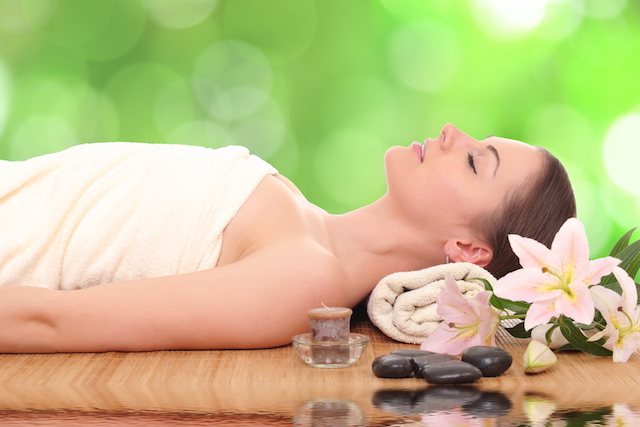Marisa Metzler writes about the recent surge in interested in self-care, both as a political act and a marketing scheme–or perhaps a muddling of booth. She notes that since the election many listicles on the topic have been penned (i.e. your post-election self-care TV bingelist!), and that the performance of self-care is omnipresent on social media. Does the invocation of self-care as a performance necessarily divorce it from its politics? Read Metzler in partial below, in full via New York Times.
And on social media, it was omnipresent. On Instagram, the tag #selfcare has well over a million posts, including images of sliced persimmons, clay face masks and many yoga poses. #SelfcareSunday joined #ThrowbackThursday, #MotivationMonday and #Caturday before it. In late November, Vanessa K. De Luca, the editor in chief of Essence magazine, posted to Twitter: “Power through today & only take in as much of the world’ drama as you can stand. #selfcare.” Many other users on Twitter mentioned desserts and alcohol. (Some in the offline world wrinkled their noses, thinking the term alluded to masturbation.)
The singling out of self-care as a concept is hardly recent. In 1976, the French philosopher Michel Foucault, in his treatise “The Care of the Self,” wrote that “the idea that one ought to attend to oneself, care for oneself” was a theme in the classical world and a practice that conditions one to care for others.
But the current usage is often traced back to the self-described “black, lesbian, mother, warrior, poet” Audre Lorde, who wrote in an essay published in her 1988 book, “A Burst of Light,” that “caring for myself is not self-indulgence, it is self-preservation, and that is an act of political warfare.”
Self-care has long had political undertones, primarily pertaining to activist burnout, said Yashna Padamsee, who works for the National Domestic Workers Alliance and has written about the term. “Audre Lorde’s quote refers back to an act of preservation and act of survival for people at the margins,” Ms. Padamsee said. “Self-care is an act of shoring up and resourcing ourselves to bring a stronger self to the movement. That’s the school of thought I come from.”
So what is the difference between self-care and simply pampering? “There is a distinction between self-care and treating yourself,” Ms. Padamsee said. “What is the purpose of your self-care? Is it to do this for all of our lives, not just yours?”
Otherwild, a boutique with locations in New York’s East Village and Los Angeles, arms would-be revolutionaries with products like a Rose Nectar ($20) and a spray called Boundaries in a Bottle ($26), made with black tourmaline, echinacea and silver fir. “I find it to be powerful and especially good if you work closely with people,” said Rachel Berks, the owner of the stores. “We are all seeking ways to heal ourselves and our psyches, understand ourselves in the world.”
But Gabrielle Moss, author of the Goop parody book, “Glop,” thinks that self-care is starting to (surprise, surprise) lose its meaning and become a marketing tool. “Things that get branded as self-care now have nothing to do with taking care of yourself, like detoxes and juice fasts,” Ms. Moss said. “I do them because I hate myself, not because I’m taking care of myself. It’s poised to be wrenched away from activists and turned into an excuse to buy an expensive bath oil.”
*Image of woman at spa via tinybuddha.com
